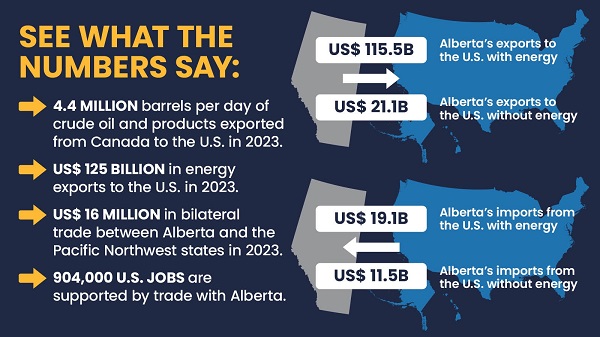Opinion
Success in politics depends on untruths in today’s political arena.

“Conservative Leader Andrew Scheer is doubling-down on his personal attacks on Justin Trudeau, straying from predictable partisan abuse to outright fiction—this from a man who promised to be a shiny new leader with a positive vision,” writes Susan Riley. The Hill Times
I mentioned this in passing after discussing the incorrect information given by Conservative Leader Andrew Scheer when he stated he was quoting from an economic report, and I was told that all politicians lie.
I can see why politics has become something less than desirable. Should we just accept that all politicians lie and vote for them? No.
There are too many politicians who are simply politicians. We used to get successful farmers, business owners, CEOs, with passion for their careers turning to politics out of a sense of duty and desire. Now we are voting for politicians who only know and understand politics.
The percentage of voters who actually vote has been decreasing and thinking all politicians lie could be part of it. Why waste their time voting when all politicians are the same, unbelievable and partisan.
A former Prime Minister’s communications director, argued that telling lies wins elections. If one thinks about how lies brand people, and the brand sticks after the lies are forgotten.
The statement about the Prime Minister taking 18 family days in 6 months sounds awful if you take it in the concept of normal work weeks of 5 days a week, 8 hours a day. A Prime Minister works 7 days a week and has to be available 24 hours a day. The average person has 55 days off every 6 months so a Prime Minister taking 18 days off seems impressive. The same could be argued about all the vacations the Prime Minister has supposedly taken. Some like the China trip, for example, were official trips on behalf of the government.
Let us look at the latest political variance from the truth.
The most recent example is that swing set the Trudeau installed at Harrington Lake. Lots of parents buy swing sets for their kids. Admittedly, a much smaller percentage of them pay $7,500 for them.
But the way Conservative leader Andrew Scheer raised the subject, you would think that Trudeau had taken the money straight out of the Mint to splurge on his brood’s private playground.
The reality check here would normally be to simply state the facts. Trudeau personally paid for the swing set, charging taxpayers $1,800 for its installation, as per National Capital Commission rules. Presumably when he leaves as prime minister, the swing set stays — along with the sauna (also paid for by Trudeau), and the refurbished deck and floating dock.
But the reality check in this case is that Scheer chose to use the $7,500 figure after the PM disclosed that he had paid that money himself.
The Opposition leader wanted people to condemn Trudeau for implied extravagance at the public expense. What he was really doing was trashing the PM for something he hadn’t done, using an assertion that was either meaningless or deliberately false.
In other words, post-truth trash. Michael Harris.
Andrew Scheer personifies politics at the highest level because he could be potentially, the next Prime Minister, not because he has the best ideas, plans and policies but because he may have the best Lies.
If all politicians lie, and some will argue that, should we accept it? In the world of fake news, political untruths, and voter distrust who do we go to for answers?
Business
Bad Research Still Costs Good Money

I have my opinions about which academic research is worth funding with public money and which isn’t. I also understand if you couldn’t care less about what I think. But I expect we’ll all share similar feelings about research that’s actually been retracted by the academic journals where it was published.
Globally, millions of academic papers are published each year. Many – perhaps most – were funded by universities, charitable organizations, or governments. It’s estimated that hundreds of thousands of those papers contain serious errors, irreproducible results, or straight-up plagiarized or false content.
Not only are those papers useless, but they clog up the system and slow down the real business of science. Keeping up with the serious literature coming out in your field is hard enough, but when genuine breakthroughs are buried under thick layers of trash, there’s no hope.
The Audit is a reader-supported publication.
To receive new posts and support my work, consider becoming a free or paid subscriber.
Society doesn’t need those papers and taxpayers shouldn’t have to pay for their creation. The trick, however, is figuring out how to identify likely trash before we approve a grant proposal.
I just discovered a fantastic tool that can help. The good people behind the Retraction Watch site also provide a large dataset currently containing full descriptions and metadata for more than 60,000 retracted papers. The records include publication authors, titles, and subjects; reasons for the retractions; and any institutions with which the papers were associated.
Using that information, I can tell you that 798 of those 60,000 papers have an obvious Canadian connection. Around half of those papers were retracted in the last five years – so the dataset is still timely.
There’s no single Canadian institution that’s responsible for a disproportionate number of clunkers. The data contains papers associated with 168 Canadian university faculties and 400 hospital departments. University of Toronto overall has 26 references, University of British Columbia has 18, and McMaster and University of Ottawa both have nine. Research associated with various departments of Toronto’s Sick Children’s Hospital combined account for 27 retractions.
To be sure, just because your paper shows up on the list doesn’t mean you’ve done anything wrong. For example, while 20 of the retractions were from the Journal of Obstetrics and Gynaecology Canada, those were all pulled because they were out of date. That’s perfectly reasonable.
I focused on Canadian retractions identified by designations like Falsification (38 papers), Plagiarism (41), Results Not Reproducible (21), and Unreliable (130). It’s worth noting that some of those papers could have been flagged for more than one issue.
Of the 798 Canadian retractions, 218 were flagged for issues of serious concern. Here are the subjects that have been the heaviest targets for concerns about quality:
You many have noticed that the total of those counts comes to far more than 218. That’s because many papers touch on multiple topics.
For those of you keeping track at home, there were 1,263 individual authors involved in those 218 questionable papers. None of them had more than five such papers and only a very small handful showed up in four or five cases. Although there would likely be value in looking a bit more closely at their publishing histories.
This is just about as deep as I’m going to dig into this data right now. But the papers I’ve identified are probably just the tip of the iceberg when it comes to lousy (and expensive) research. So we’ve got an interest in identifying potentially problematic disciplines or institutions. And, thanks to Retraction Watch, we now have the tools.
Kyle Briggs over at CanInnovate has been thinking and writing about these issues for years. He suggests that stemming the crippling flow of bad research will require a serious realigning of the incentives that currently power the academic world.
That, according to Briggs, is most likely to happen by forcing funding agencies to enforce open data requirements – and that includes providing access to the programming code used by the original researchers. It’ll also be critical to truly open up access to research to allow meaningful crowd-sourced review.
Those would be excellent first steps.
The Audit is a reader-supported publication.
To receive new posts and support my work, consider becoming a free or paid subscriber.
Invite your friends and earn rewards
Business
DOGE asks all federal employees: “What did you do last week?”

 MxM News
MxM News
Quick Hit:
Elon Musk said Saturday that all federal employees must submit a productivity report if they wish to keep their jobs. Employees received an email requesting details on what they accomplished in the past week, with failure to respond being treated as a resignation.
Key Details:
-
Musk stated that federal employees must submit their reports by 11:59 p.m. on Monday or be considered as having resigned.
-
Musk emphasized that the process should take under five minutes, stating that “an email with some bullet points that make any sense at all is acceptable.”
-
FBI Director Kash Patel instructed agency employees not to comply with the request for now, stating that the bureau will handle reviews internally according to FBI procedures.
Diving Deeper:
Federal employees have been given a strict deadline to justify their jobs, as DOGE pushes for greater accountability within the government. The email came late Saturday, explaining that all federal workers would be required to submit a brief productivity report detailing their accomplishments from the previous week. Those who do not respond will be deemed to have resigned.
Musk framed the requirement as a minimal effort, writing on X that “the bar is very low.” He assured employees that simply providing bullet points that “make any sense at all” would suffice and that the report should take less than five minutes to complete.
The policy aligns with President Trump’s push for increased efficiency in government. The Office of Personnel Management confirmed the initiative, stating that agencies would determine any further steps following the reports. Meanwhile, FBI Director Kash Patel pushed back, advising bureau employees not to comply for the time being, stating that the FBI would handle its own review process.
The policy has drawn sharp criticism from the American Federation of Government Employees, which blasted Musk’s involvement, accusing him of disrespecting public servants. The union vowed to fight any terminations resulting from the initiative.
Musk also took aim at the White House’s Rapid Response account after it listed recent Trump administration actions, including expanding IVF access and cutting benefits for illegal immigrants. In response, Musk quipped that simply sending an email with coherent words was enough to meet the requirement, reiterating that expectations for the reports were low.
The directive comes as Musk’s Department of Government Efficiency seeks to eliminate waste across federal agencies, signaling a broader crackdown on bureaucratic inefficiencies under the Trump administration.
-

 Alberta11 hours ago
Alberta11 hours agoSnapshots of Alberta and Canadian trade with the US
-

 Censorship Industrial Complex10 hours ago
Censorship Industrial Complex10 hours agoIs Our Five-Year Nightmare Finally Over?
-

 Opinion9 hours ago
Opinion9 hours agoTwo New Studies Find Fewer Clouds Cause Warmer Temps
-

 Health8 hours ago
Health8 hours agoThe FDA is trying to shut down his successful cancer treatments. Dr. Stanislaw Burzynski’s patients are outraged
-

 Indigenous2 days ago
Indigenous2 days agoTrudeau gov’t to halt funds for ‘unmarked graves’ search after millions spent, no bodies found
-

 Business2 days ago
Business2 days agoApple removes security feature in UK after gov’t demands access to user data worldwide
-

 Business2 days ago
Business2 days agoPepsiCo joins growing list of companies tweaking DEI policies
-

 Energy1 day ago
Energy1 day agoFederal Government Suddenly Reverses on Critical Minerals – Over Three Years Too Late – MP Greg McLean

 By
By 


